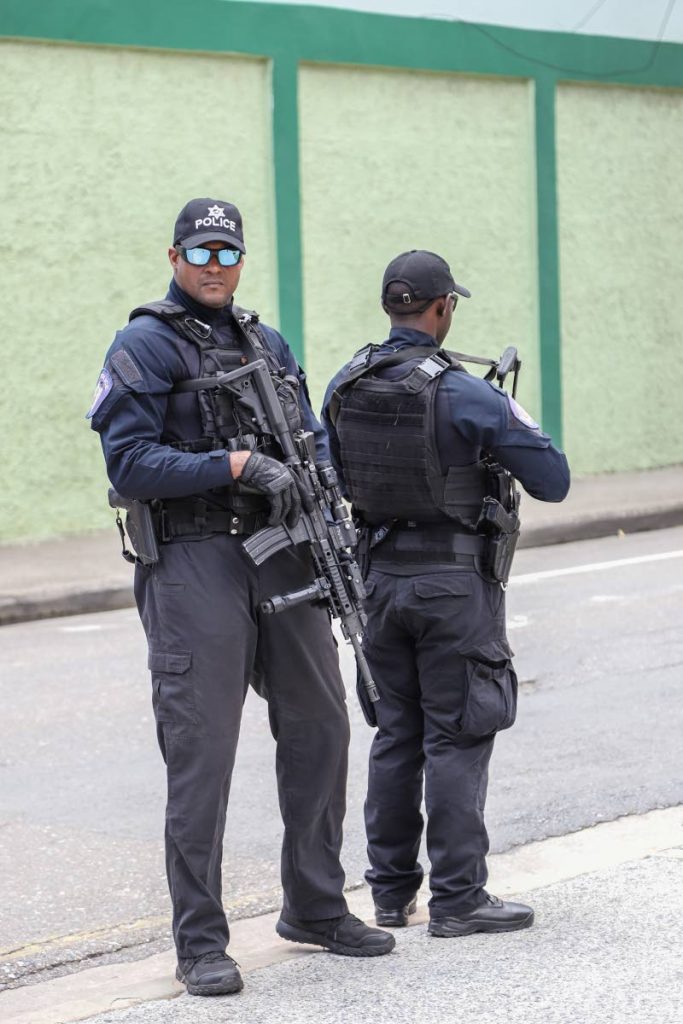Griffith: Marksmanship training will save lives

Police Commissioner Gary Griffith is placing greater priority on marksmanship training for police by having mandatory assessments on accuracy and weapons handling.
Speaking with Newsday this afternoon, Griffith said one of his goals was to test officers more frequently to assess their ability to assemble, clean and fire their weapons.
He intends to implement mandatory visits to the police shooting range at least once a year.
He said if implemented, this practice could not only allow officers to defend themselves better, but also minimise unnecessary bloodshed.
"The more you train, the more you lower the possibility of negligent discharges which not only cost the life of another person but also is a threat to the person who holds the weapon. There have been times where people have accidentally shot themselves.
"We also have to train police officers on the importance of cleaning their firearms constantly to ensure that there isn't a stoppage if and when it is required because when you pull out a firearm, it means that your life is at risk. It's also important that they have constant training on a range to ensure they can take proper, accurate shots, so if you make inaccurate shots it can cost you your life."
Newsday understands there are no current policies in place for regular officers to undergo a mandatory marksmanship assessment as only special elite units were required to undergo frequent testing.
Griffith said he intended to change this by having a mandatory testing scheme.
"I want to make it mandatory for all officers. I intend to push heavy with training, the more they (police) train the less likelihood that they will be a casualty.
"It is now being packaged as it's part of one of the many things I am asking allocation for in the next budget because I'm asking for several thousand officers now asking to fire off rounds ammunition, space for training and so on. There will be an expense but it will be worth it, if one life can be saved for this."
Newsday also spoke to director and chief training officer of the Blue Line Law Enforcement Academy Paul Nahous who said he welcomed Griffith's efforts to make firearms testing done on a more frequent basis.
Nahous, who is an Israeli certified counter terrorism tactical firearm instructor and a US certified level 3 SWAT Sniper, said additional training would also be an asset to the police service.
"Reassessment of training standards and implementation of mandatory annual training (which is an ongoing consideration already). Further separation of training qualifications.
"While certain tactical units will be held to a higher standard and retrained as such, there seems to exist a middle ground that needs to be explored further. For example, an officer may be assigned to a division/unit that required him to keep a concealed weapon. It would make sense that his basic re-qualification should incorporate drawing and shooting from concealment in the majority of testing."
Nahous said while it was not realistic that all police officers will be expert marksmen, they should show some basic competence in handling and firing guns with ease.


Comments
"Griffith: Marksmanship training will save lives"